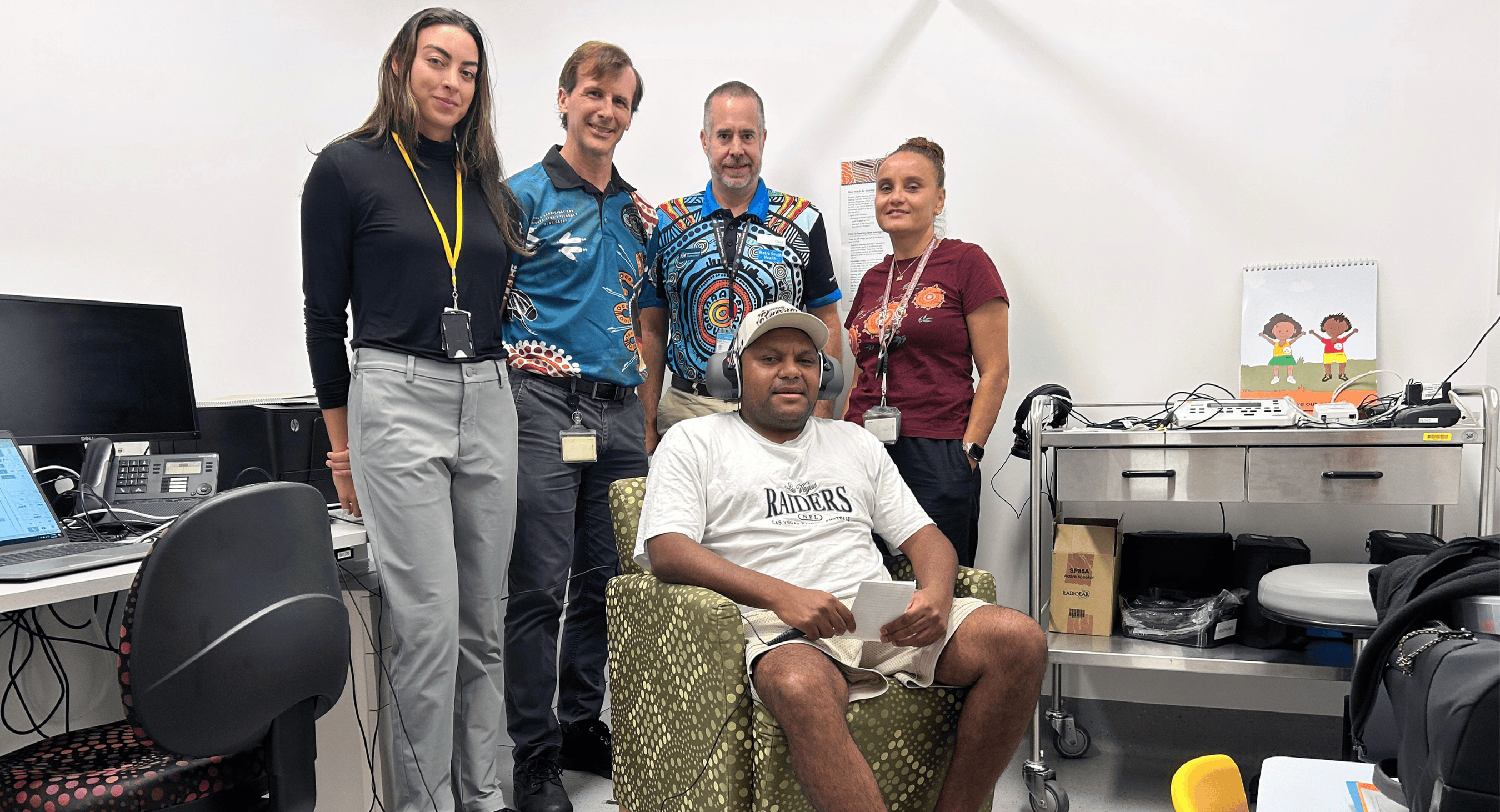
This World Hearing Day, the PAH Audiology Department is turning up the volume on health equity for First Nations patients, thanks to the launch of a community-based audiology service.
Named after the Quandamooka word for ears, the Binung Hearing and Listening Mob is a fortnightly clinic hosted by the PAH Audiology team in response to an identified gap in audiology healthcare access.
“The prevalence of hearing loss in Aboriginal and Torres Strait Islander people is a lot higher than in other members of the community. It was known that we weren’t seeing enough of this group at our PAH clinics,” said PA Director Audiology David Da Silva.
“Having a yarn with UQ South Qld Aboriginal and Torres Strait Islander Hearing Health, we identified that PAH was being underutilised and that they didn’t know they could refer adults to PA.”
Launched at the Inala Centre of Excellence (CoE) in April 2024, the fortnightly clinic brings timely and culturally safe care closer to those who need it, as well as building relationships with local GPs to increase awareness of the PA service and referral pathways.
“PA Audiology is actively engaging with GPs in the Inala community, where we know there is a high number of patients who identify as Aboriginal and Torres Strait Islander and where they have longstanding, trusted pathways to culturally safe care,” David explained.
The clinic’s primary purpose is to connect First Nations patients with a comprehensive audiological service that offers everything from hearing tests to ENT referrals and Hearing Aid Bank (HAB) referrals. Diagnostic assessments and audiological rehabilitation are also available to those who require further care.
David says the clinic counteracts the inflexibility of traditional clinical care models for First Nations patients, by effectively breaking down existing barriers to access. Similarly, he points out that the clinic’s ethos directly reflects this year’s World Hearing Day theme, Changing mindsets: Empower yourself to make ear and hearing care a reality for all.
"Much of how we run clinics in the traditional sense is a barrier to First Nations people accessing this area of care. We’re targeting this issue head-on to make sure that people get the support they need right away.
“These communities are more supported at Inala CoE because it’s not a new place for them—they are already patients there. Importantly, by offering a drop-in service within their local community, we are making it easier for people to access care without needing to adhere to rigid appointment schedules,” he explained.
While the service establishes cultural governance for optimal care access, the team look forward to seeing the clinic evolve into a community-owned care pathway where Mob are looking after Mob.
“One of the clinic’s long-term goals is to empower First Nations communities to run their own hearing health services. We are only just scratching the surface of the audiology capacity of this program,” David explained.
“Cultural governance allows First Nations culture to be placed at the centre of the program and is critical to the success of services and programs for First Nations families.
“We are really proud of this service, and there are going to be some great outcomes in the future. We are just approaching this slow and steady so that it can gain good traction.”